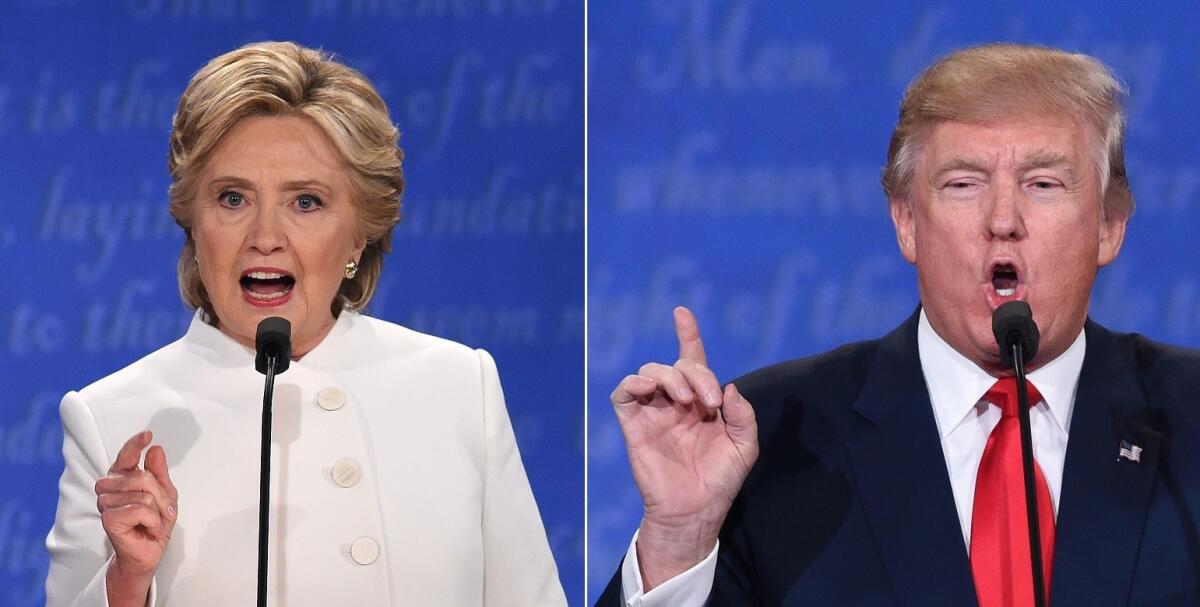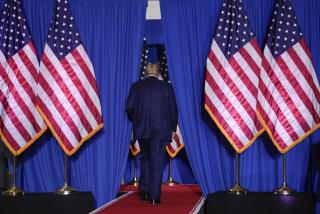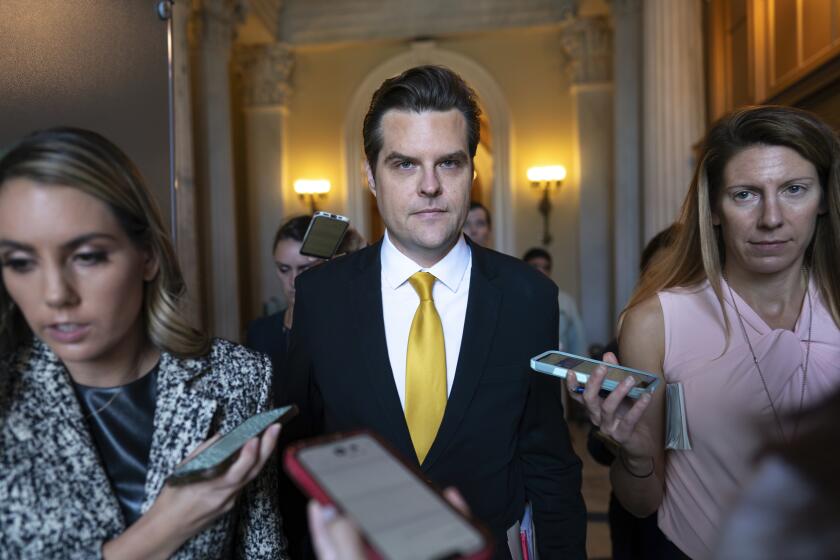Opinion: Forget about the Steele dossier. Trumpâs conduct in office is the real scandal

In 2018 President Trump tweeted: âThe only âCollusionâ is that of the Democrats with Russia and many others.â This week the idea that Trump was the victim, not the beneficiary, of Russian meddling in 2016 was revived. The impetus was the release of previously redacted footnotes from last yearâs report on the Russia investigation by Michael E. Horowitz, the Justice Departmentâs inspector general.
According to an editorial in The Wall Street Journal, the new information showed that the FBI was duped by Russian intelligence. âRussia interfered in Americaâs 2016 election, as several government reports have established,â the editorial said. âThe latest disturbing news is that Russia may have received an assist from no less than the Federal Bureau of Investigation.â
The vehicle for that meddling, the editorial suggested, was the so-called Steele dossier, a collection of reports provided to the FBI by Christopher Steele, a former British intelligence agent, as part of an investigation funded by Democrats. Steeleâs material was cited by the FBI in application for a court order to conduct surveillance on Carter Page, a former Trump campaign advisor.
The idea that the Steele dossier might have contained Russian disinformation isnât new. (A Los Angeles Times editorial mentioned that possibility in 2017.) In Horowitzâs report, he wrote that the FBI should have done more to examine Steeleâs contacts with Russian oligarchs âin order to assess those contacts as potential sources of disinformation that could have influenced Steeleâs reporting.â He also found fault with decisions made in the Page surveillance.
But Horowitz also wrote that his investigators âdid not find documentary evidence that political bias or improper motivationâ influenced decisions to investigate people with connection to the Trump campaign. That demolished a key pillar of Trumpâs âwitch huntâ narrative. Moreover, the inspector general made clear that, contrary to what some Trump supporters believed, the Russia investigation didnât begin with the Steele dossier. (FactCheck.org debunked that talking point here.)
But the new information does buttress the argument that the FBI wasnât sufficiently skeptical about Steeleâs information. And some in the news media also probably gave it too much credence. (Erik Wemple, a Washington Post columnist, has written about what he sees as media credulity where the dossier is concerned.)
But even with the latest revelations, itâs a reach to argue that, by paying for an investigation that might have relied on questionable Russian sources, the Democrats were âcolludingâ with Russia.
Itâs also true, of course, that Special Counsel Robert S. Muller III failed to establish that the Trump campaign âconspired or coordinated with the Russian government in its election interference activities.â (Mueller did find that there were âmultiple links between Trump campaign officials and individuals tied to the Russian government. Those links included Russian offers of assistance to the campaign.â)
But for purposes of evaluating Trump as a candidate for reelection, the question of whether his campaign colluded with Russia in 2016 is old news. There is no doubt that he asked Ukraine to investigate former Vice President Joe Biden, a potential (now almost certain) 2020 opponent. Trumpâs infamous July 25, 2019, telephone conversation with Ukrainian President Volodymyr Zelensky occurred the day after Mueller testified to Congress about the Russia investigation.
The difference, of course, is that Trump was president when he pressured Zelensky, which makes his conduct even worse than a presidential candidate inviting a foreign power to involve itself in a U.S. election. And it can be argued that Trump did exactly that in 2016 when he said: âRussia, if youâre listening, I hope youâre able to find the 30,000 [Hillary Clinton] emails that are missing.â
Trump, of course, dismissed the scandal that led to his impeachment as a hoax and a continuation of a âwitch hunt.â But it was far from that. He was put in the dock of the House by his own words â and deeds, such as the administrationâs stalling of security assistance to Ukraine.
Those incriminating words and actions constitute a truly damaging dossier, and itâs not Russian disinformation.
More to Read
A cure for the common opinion
Get thought-provoking perspectives with our weekly newsletter.
You may occasionally receive promotional content from the Los Angeles Times.











